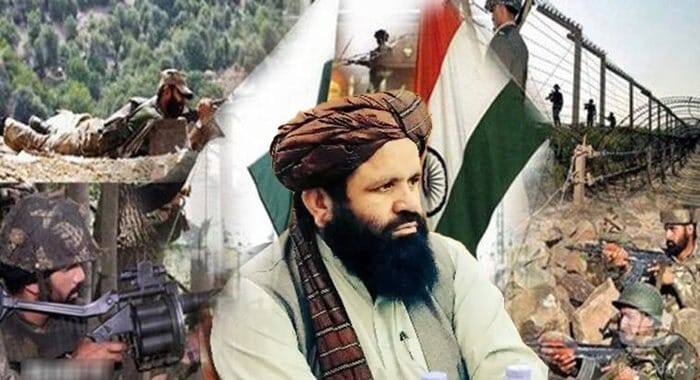The BBC Pashto service has reported that Taliban deputy interior minister, Ibrahim Sadr, made a secret and unannounced visit to India during a time of heightened tensions between New Delhi and Islamabad. The visit, which has yet to be confirmed or denied by either the Indian government or the Taliban authorities, is being viewed by analysts as an unusually bold move with potentially far-reaching implications for regional diplomacy.
The report highlights that Ibrahim Sadr, a powerful and influential figure within the Taliban government and known to be close to the movement’s supreme leader Hibatullah Akhundzada, is often involved in key strategic and security-related decisions. According to Middle East Institute sources quoted in the BBC’s coverage, Sadr has long held a reputation as a hardliner military commander, having served as deputy defence minister during the Taliban’s first regime in the 1990s and as a close confidant of the late Taliban chief Mullah Akhtar Mansoor.
The Indian newspaper The Sunday Guardian also confirmed that a senior Taliban figure recently visited India, though it stopped short of naming the individual. The timing of the visit has been described as “critical,” considering the flare-up in hostilities between India and Pakistan.
Also Read: Khawarij Commander Abdul Wahid Killed in Zabul, Afghanistan
The Middle East Institute notes that Ibrahim Sadr led Taliban military operations in southern Helmand in 2021 and has previously been accused by the U.S. Treasury’s Office of Foreign Assets Control (OFAC) of involvement in suicide bombings and other militant activities. In 2018, he was placed on OFAC’s sanctions list for his alleged role in terrorist operations.
There are also claims that Sadr maintains close connections with Iran’s Islamic Revolutionary Guard Corps (IRGC) Quds Force, which could add further geopolitical weight to the nature of the visit.
While the exact purpose of the India trip remains unknown, the report has sparked speculation that the Taliban may be seeking to establish or improve back-channel communication with India, despite previously hostile relations and ideological divides.
The revelation comes on the heels of a confirmed phone conversation between India’s External Affairs Minister S. Jaishankar and Taliban Foreign Minister Amir Khan Muttaqi—an event that marked a rare direct diplomatic interaction between the two sides.
Though unverified, the reported visit could signal shifting dynamics in regional diplomacy, particularly as India seeks to hedge against Pakistani influence in Afghanistan, and the Taliban attempts to gain international legitimacy.





